Bridging Cooper Creek
Local Company Manufactures, Installs New Bridge on Area Reservoir Trail
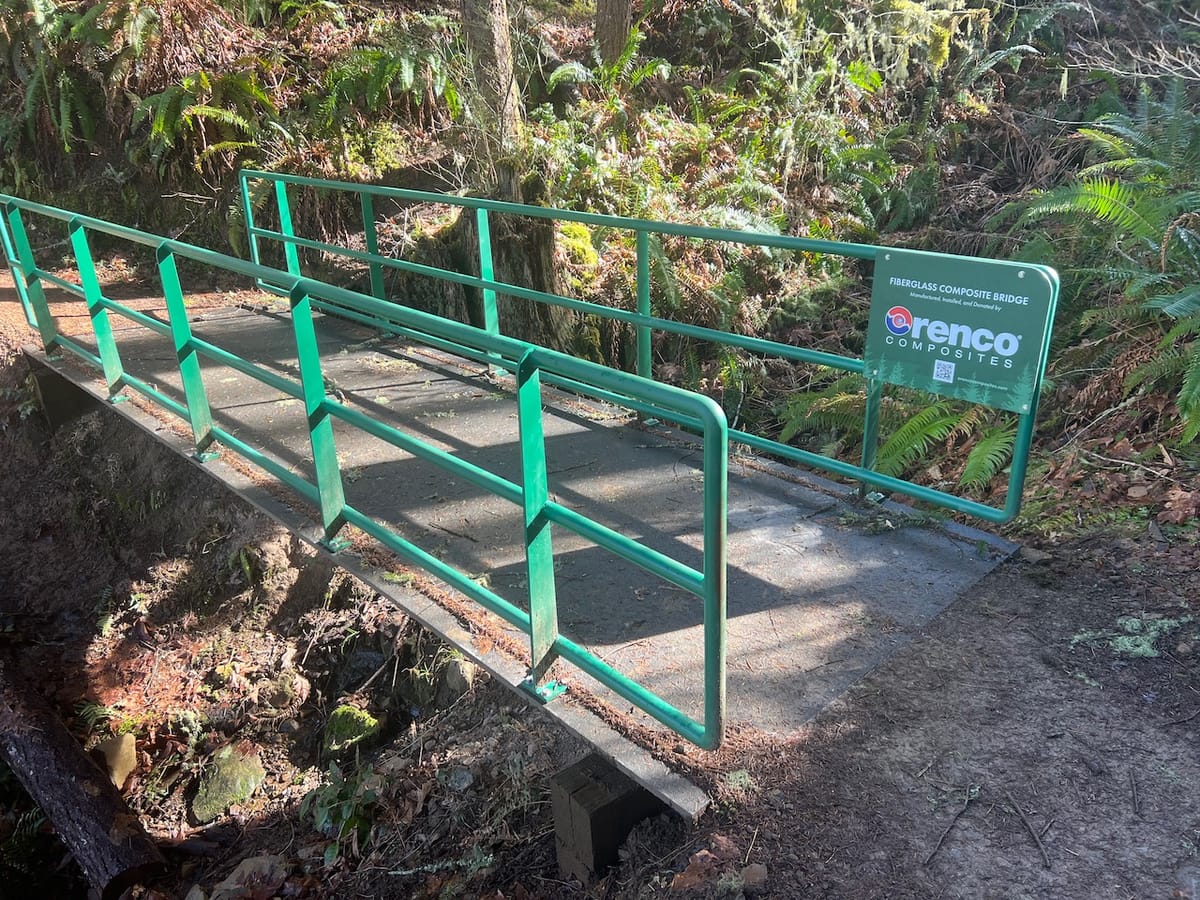
SUTHERLIN, OR – Last summer, mountain bike riders and other outdoor enthusiasts at Cooper Creek Reservoir outside of Sutherlin, Oregon, discovered a surprise: a brand-new bridge replacing an old, dilapidated wood bridge that was dangerously close to collapsing. Bikers and hikers could once again safely circumnavigate the lake on its nicely maintained 6-mile path.
Writes Moto Bob on LUMBR’s (Land of Umpqua Mountain Bike Riders) social media page in 2024:
“The new bridge at Cooper Creek was installed today! A big shout out to Eric Ball and his crew from Orenco. They did an awesome job of floating the bridge out and winching it into place.”
But what is this bridge? And where exactly did it come from?
Eric Ball heads Orenco Composites™, a division of Orenco Systems®, a Sutherlin-based company that employs more than 400 people. The Composites group creates buildings, tanks, covers, walkways, and bridges with fiber-reinforced polymer (FRP), commonly known as fiberglass. The material is lightweight, super strong, and able to be shaped into all kinds of things, thanks to its manufacturing process.
An avid cyclist and hiker who spends a lot of time on the Cooper Creek trail, Ball knew an FRP bridge would be a durable, long-lasting, low-maintenance fix for the failing Cooper Creek bridge. So, his team designed and built a prefabricated FRP bridge with steel safety railings, which was installed in June 2024.
Of particular note was how quickly and easily it was put into place.
A site-built bridge can take weeks to install and require substantial onsite manual labor, not to mention all the trips hauling materials in and hauling construction debris out. There are prefab steel trail bridges, but they are much heavier, can rust, and typically have wood decks that can rot and become slick.
But these FRP bridges are something completely different.
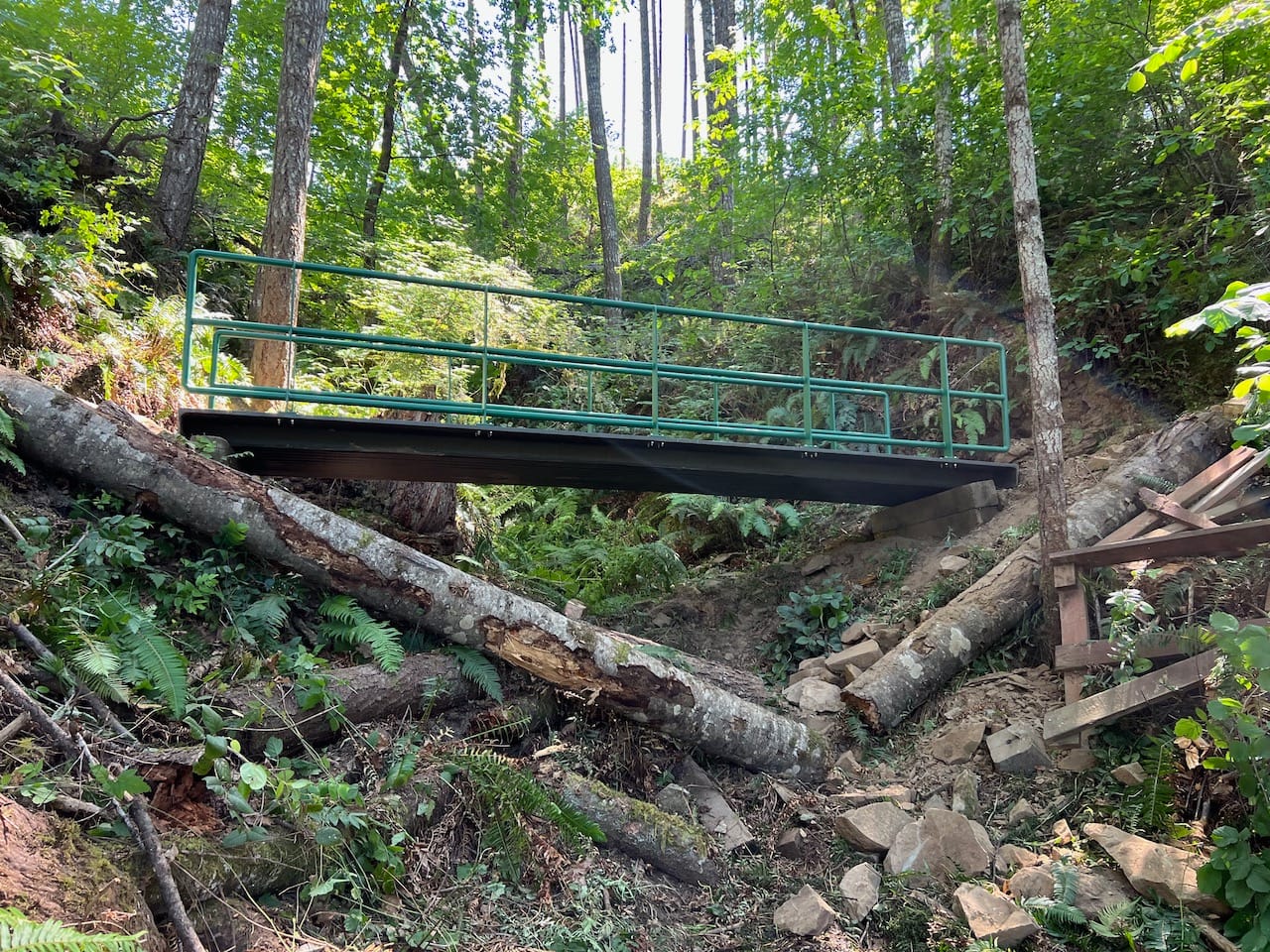
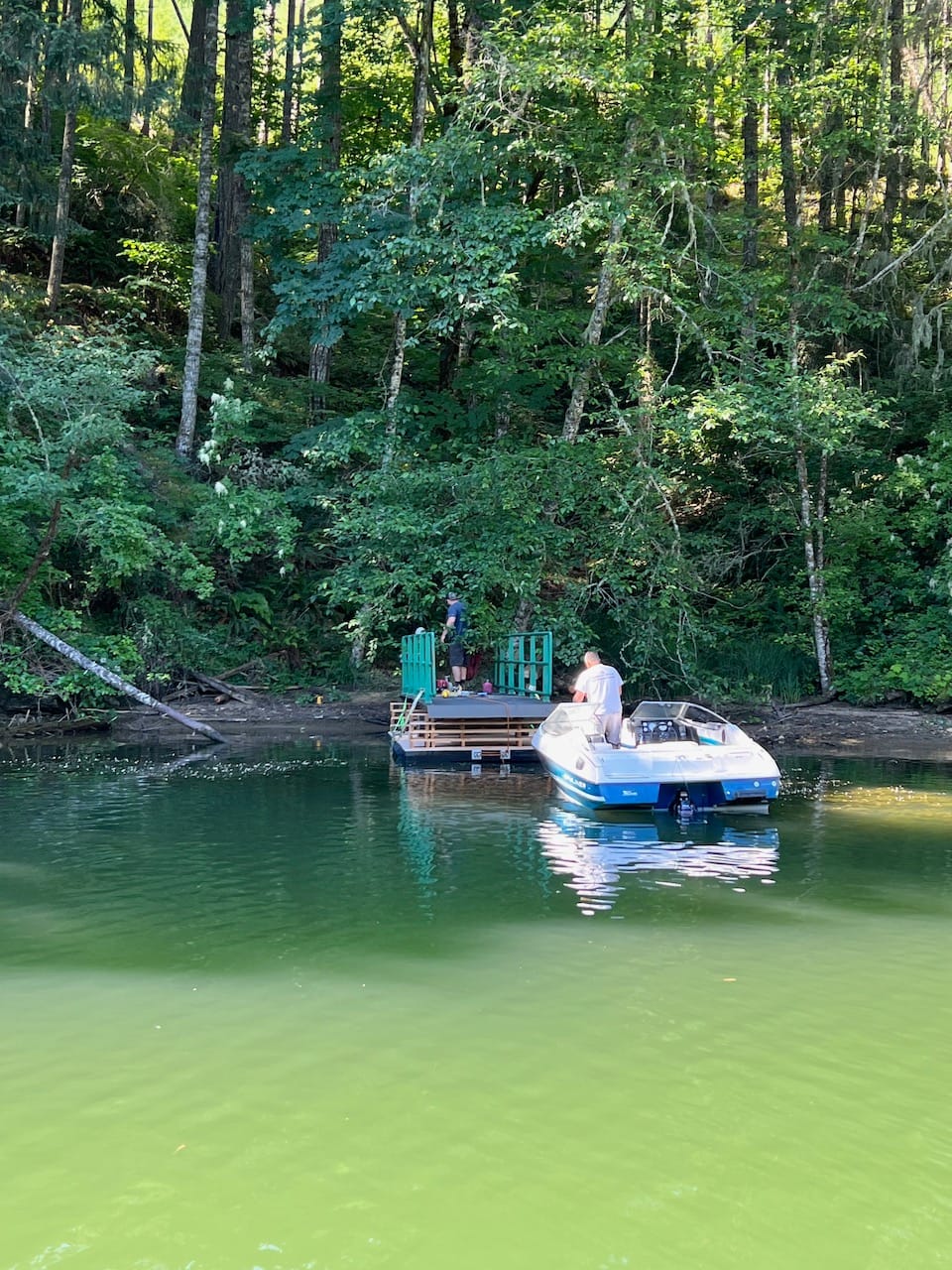
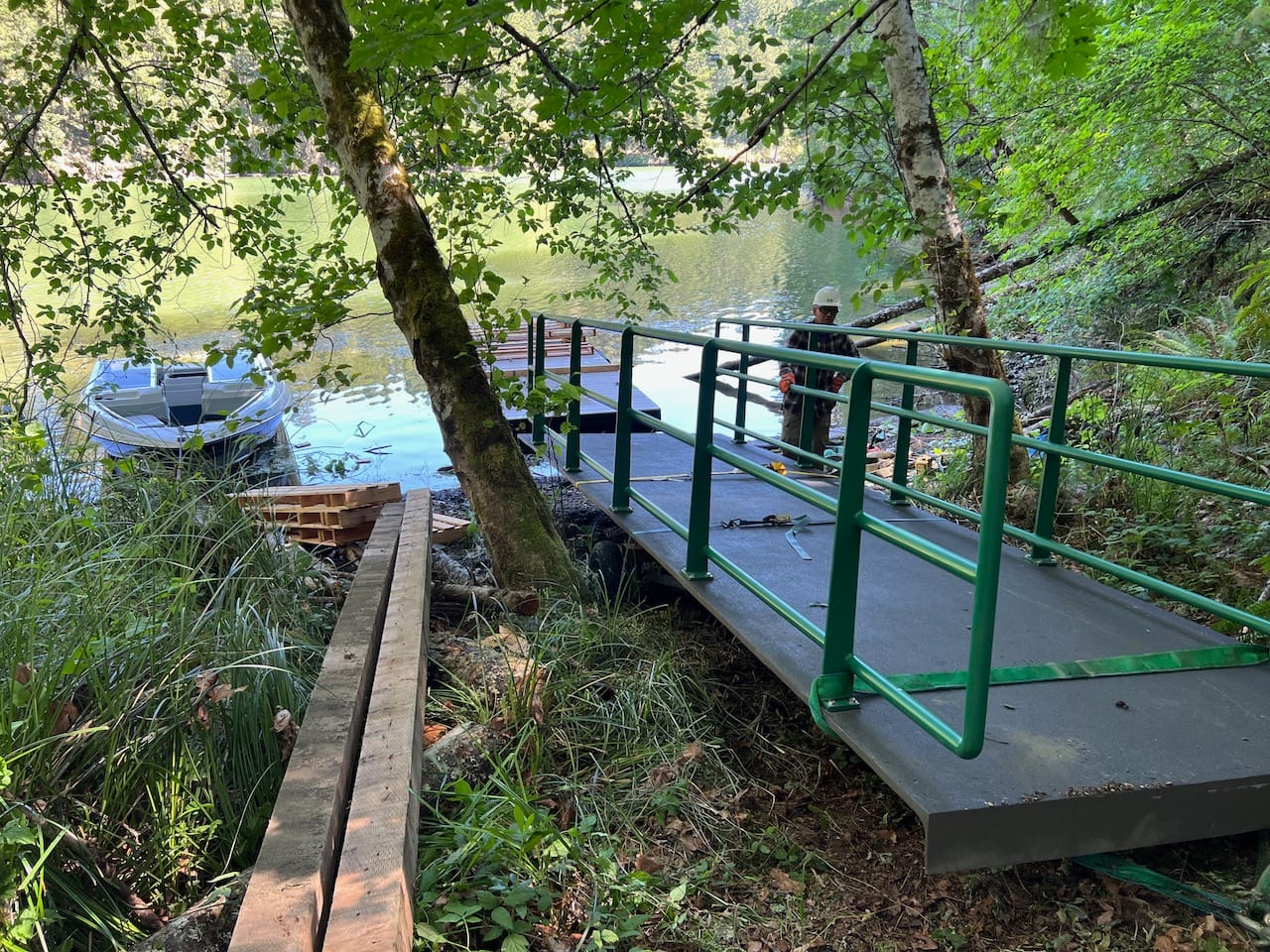
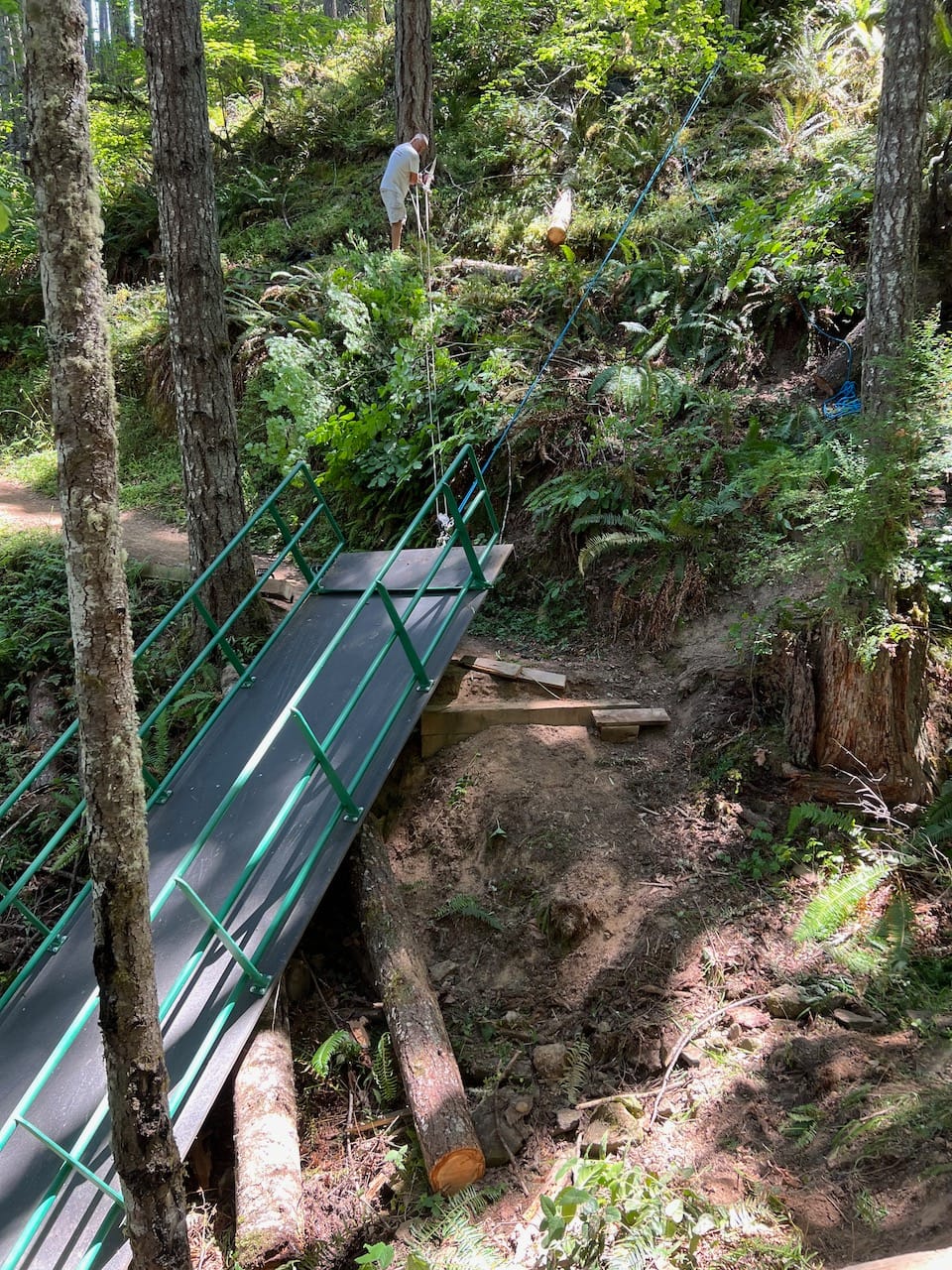
Orenco Composites’ prefabricated FRP bridges are molded as a single one-piece structure using a process called vacuum infusion, resulting in a lightweight, high-strength monolithic bridge ready to be installed in a single day, not weeks. These FRP bridges won’t rot or rust and are expected to last 100 years. The built-in nonskid surface won’t become slick like wood decks, minimizing the chance of a biker or hiker falling. Because the FRP bridges are over 70% fiberglass by weight, they are very fire resistant. The bridges are also extremely tough and can withstand severe impact loads without breaking or permanent deformation.
Floated across the reservoir and winched into place by workers from Orenco, the new 20-foot-long Cooper Creek bridge now spans a ravine at the 1/2-mile marker. A new sign was recently put in place to recognize Orenco Composites for its donation of both the bridge and its installation.
Since the bridge’s installation in 2024, hundreds have ridden or walked across it. It will remain a structure to serve the trail-loving community for decades to come.
“Our prefab FRP bridges are extremely durable, lightweight, and easy to install,” Ball says. “There are trail systems all across the country that need pedestrian bridge upgrades and replacements, including sections of the burned-out North Umpqua Trail, where our prefab FRP bridges would be an ideal solution.”
Considering all the benefits of Orenco Composites’ prefab bridges – award-winning patented InfraCore® technology, speed of installation, lightweight material, durability, corrosion resistance, and ease of maintenance – they offer a better option than traditional pedestrian bridges, especially over the long term.
For more information about Orenco Composites and its prefab bridges and other FRP infrastructure products, visit OrencoComposites.com.


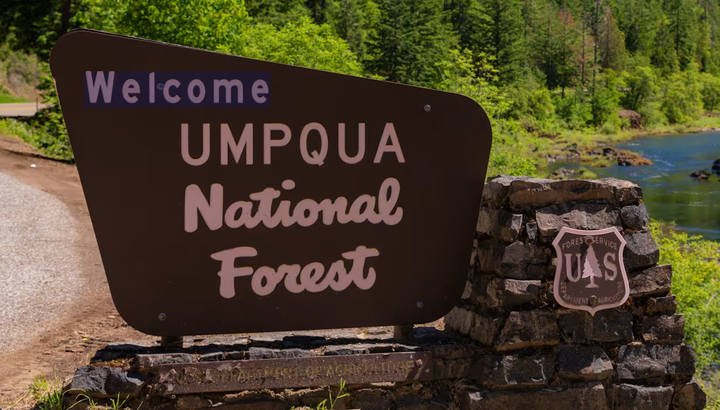

Comments ()